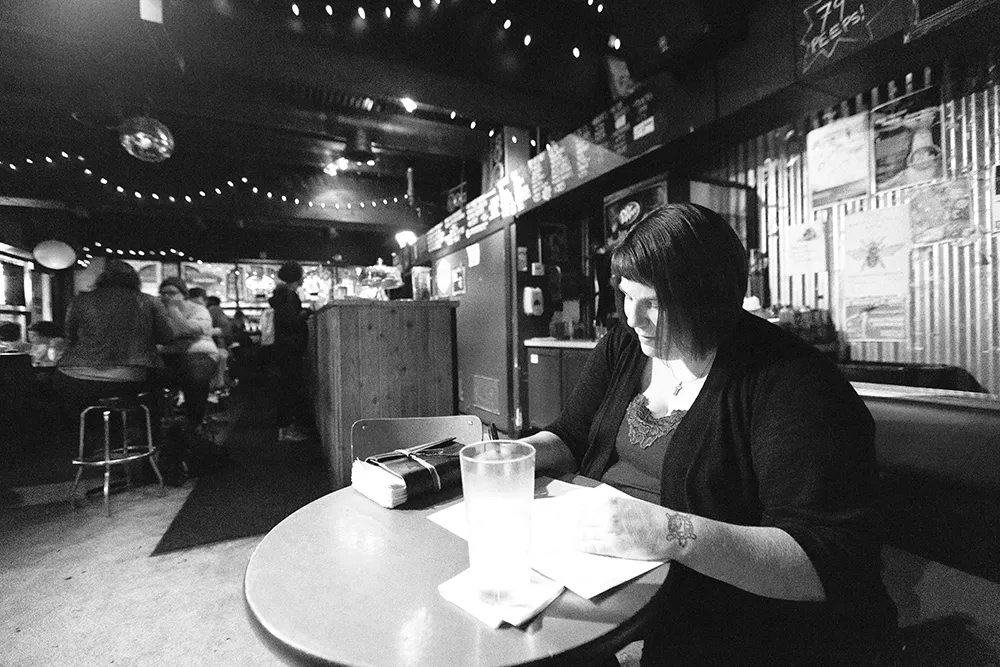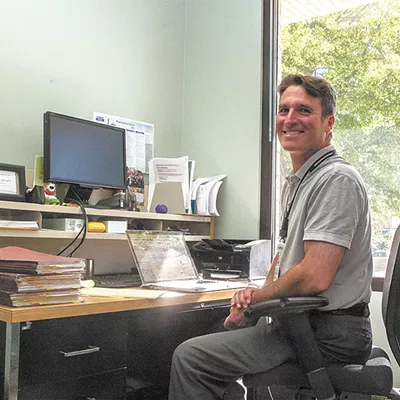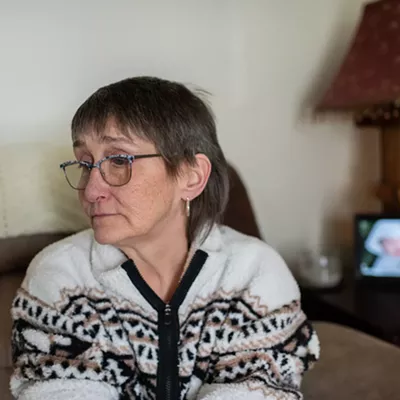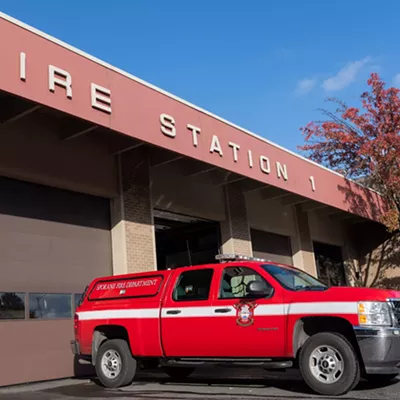Teri Koski, 38, is the vice president of the National Alliance on Mental Illness-Spokane, a case manager for the elderly and disabled and an accomplished poet. As a NAMI volunteer, she shares her struggles with mental illness with various groups. You often can catch her reading her poetry at Broken Mic nights on Wednesdays at Neato Burrito in downtown Spokane.
What mental illness is to me is when you wake up feeling like shit and you have no reason to. Everything can be fine — I have a job, I have a wonderful partner, all the earmarks of success — but there are days when I wake up and I want to die.
I always felt different from other people. I looked at things very negatively. I had a lot of anger inside of me. I couldn't figure out why. The first time I attempted suicide I was 14 years old. I don't think I understood what I was doing. All I knew was I was hurting and I wanted to make the hurt go away.
My turning point came when I was in my early 20s. I went to Central Washington University and one day, as I was driving home from school, I drove my car through the barrier and into the ravine.
Luckily, my car hit the barrier and was towed home. When I got home, my now ex-husband stuck his head out the door and asked me if the car was OK. (That's why he's now my ex-husband.) I told him, "I think something is wrong with me. I don't think other people feel like this."
I saw a counselor through my work's employee assistance program. I remember telling him all of my symptoms when he looked at me and asked, "Do you ever feel like your brain is in a cloud?"
"Yeah," I said. "All the time." And then I completely lost it.
He didn't know it, but I'd been writing poetry for years to deal with my depression. One of the lines I wrote over and over again was, "The cloud I call my brain. The cloud I call my brain." That was the first time I realized there were other people like me in the world that didn't really fit in anywhere.
My first diagnosis was bipolar, followed by borderline personality disorder, obsessive compulsive disorder and post-traumatic stress disorder.
I went through years of different counselors and medications before I finally found one that stabilized me. As I went through counseling, my dosage was gradually reduced. I'm at the point now where I'm not on medication. But everything I do in my everyday life is to compensate for that — from the way I eat to the way I go to sleep, the apps I use on my phone to my exercise and meditation. It's all to keep me from wigging out on a daily basis.
I've been stable for about four years now. I slip sometimes, but I notice I slip less and less often. The hardest thing I've ever had to do is to stay stable.
Our lives are very much self-fulfilling prophecies. We're trained by reinforcement. If we say to ourselves a hundred times a day, "I hate myself. I'm not worth anything," then that's what we've taught ourselves to believe. You have the power to change that thought process.
When I do my meditation in the morning, I tell myself, "I am a good person. I do good things. I make good decisions." You're not going to believe it at first. Hell, I know I didn't. But then, every once in a while, you'll catch yourself realizing that you did make a good decision, that you did do something positive, that something good did happen because of something you did. And you kind of keep building on that. I can look at things now with an attitude of acceptance: I am a good person. I do have worth. I deserve to be here as much as anybody else. ♦
Editor's note: This has been lightly edited for space and clarity.



















